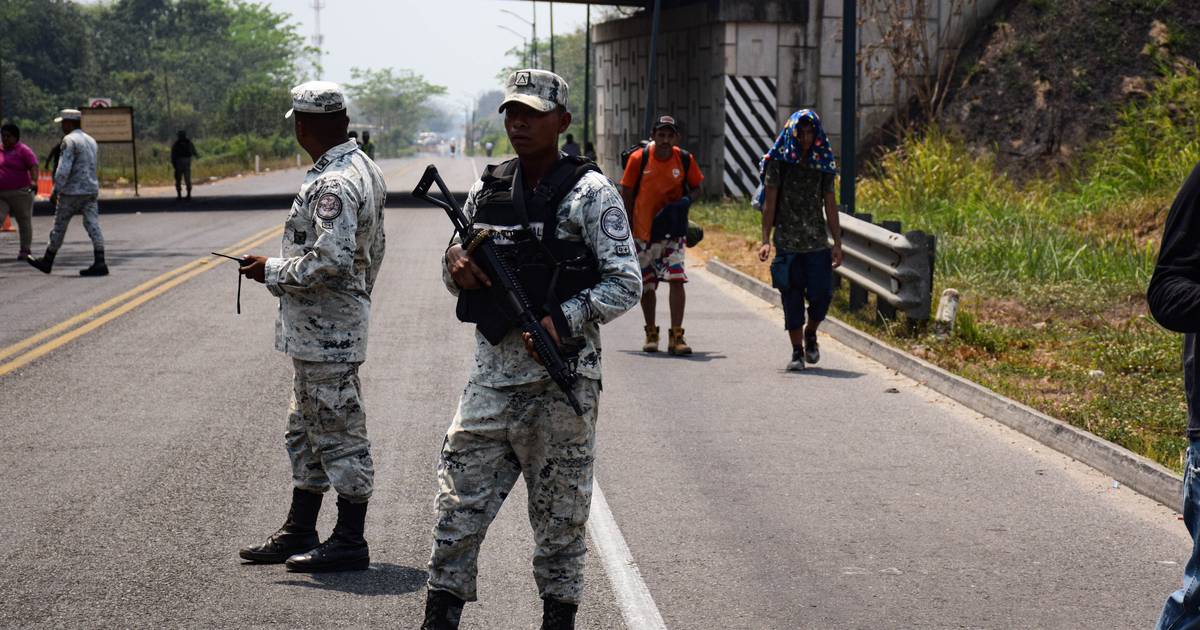The United States Embassy in Mexico This Saturday, it issued a travel alert due to insecurity in Chiapas, a state on the southern Mexican border that is facing a wave of violence from organized crime and disputes between drug trafficking cartels.
The warning comes “due to growing violence and security concerns in Chiapas,” which is why US officials have restrictions on traveling to the area, according to information available on the Embassy's official website.
The US Government delimited a danger area that includes most of the border between Chiapas and Guatemala from the Pacific coast to the Montes Azules Biosphere Reserve.
It also covers cities like Netzahualcoyotl, Ocosingo, The Ocote, San Francisco Pujiltic and Mapastepec.
Instead, it allows travel to Tapachula, the largest city on Mexico's border with Central America.
“Monitor local press for updates and, in case of emergency, call 911. Review your personal safety plans and follow the instructions of local authorities,” the alert concludes.
Narco seeks control of Mexico's border with Central America
The alert comes as violence grows in Chiapas due to disputes between drug trafficking cartels to control Mexico's border with Central America.
More than 100,000 children and adolescents were affected in 2023 in the state by disputes between criminal groups, according to a report by the Network for the Rights of Children in Mexico (Redim) and the Network for the Rights of Children and Adolescents. in Chiapas (Redias).
Furthermore, the warning coincides with the tour that Claudia Sheinbaum, the presidential candidate of the ruling National Regeneration Movement, is taking this weekend (Brunette), who will visit the southern border.
Indigenous people of Chiapas protest and demand an end to drug trafficking
Hundreds of Tzotzil Mayan indigenous people They protested this Saturday to demand a stop to drug trafficking and greater action by the authorities in the face of violence in Chiapas.
“We want the closure of the cantinas, clandestine points where they allegedly sell drugs. We demand dry law throughout the municipality (Chalchiuitán), enough of so many canteens, enough of the drug sale”, demanded Pedro Velazco, spokesperson for the Pueblo Creyente collective, during the demonstration.
The residents also denounced the neglect of the countryside, the presence of paramilitary groups and the low schooling among young people, who prefer to migrate to the northern states of Mexico, to USA either Canada.
The contingent was made up of Tzotzil Mayan indigenous people, mostly women, children and older adults, who gathered on the outskirts of the town of Chalchiuitan.
Given the presence of organized crime, the indigenous people denounced the dispossession of their lands, threats of deathforced displacement and murders.
Civil and indigenous organizations have denounced since 2023 a “civil war” atmosphere which worsens every day due to armed conflicts, the presence of drug trafficking cartels and the electoral process. This has triggered homicides and disappearances, particularly in indigenous communities related to the Zapatista Army of National Liberation (EZLN).

